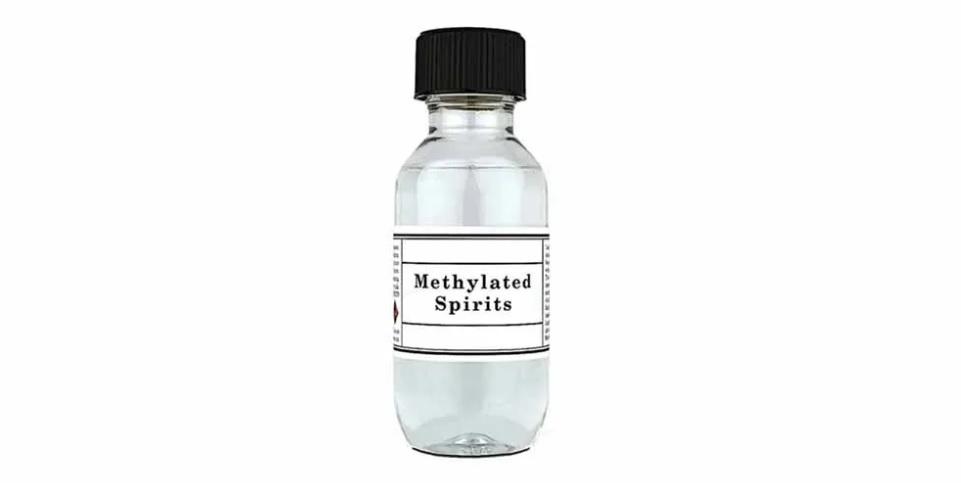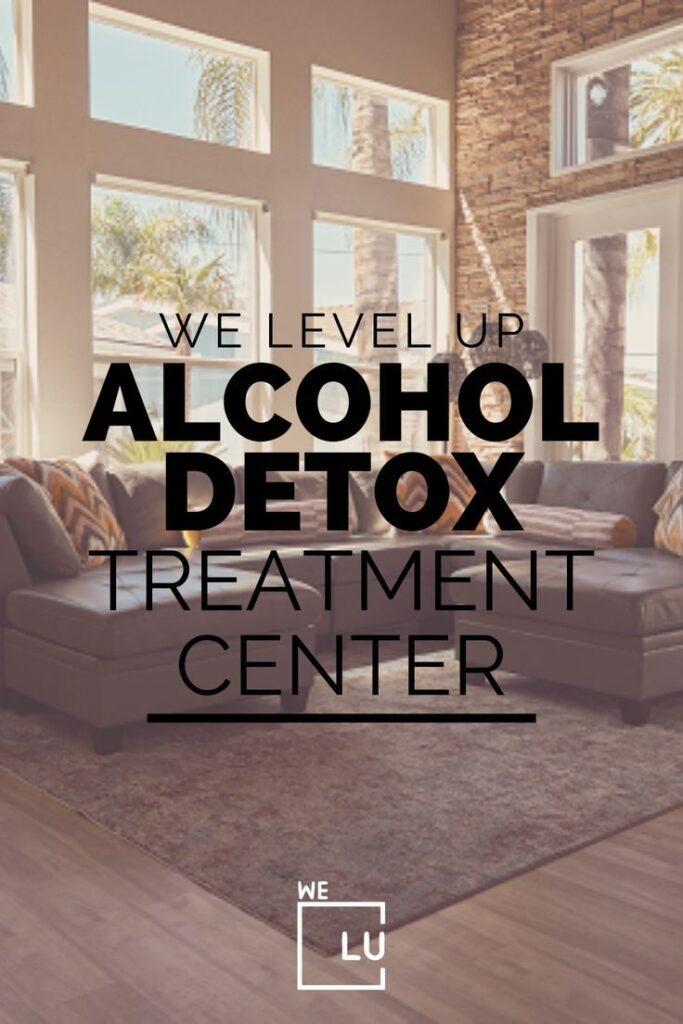What is Meths Drinking?
Meths drinking, also known as methylated spirits drinking, is a dangerous and potentially deadly practice that involves the consumption of methylated spirits, also known as denatured alcohol. Methylated spirits are alcohol treated with additives, such as methanol, to make it poisonous and unsuitable for consumption.
Despite these safety measures, some individuals still choose to drink methylated spirits as a cheap and easily accessible source of alcohol, especially in regions where alcohol is restricted or prohibited.
Methylated spirits are commonly used as a solvent, fuel, or cleaning agent and are not intended for human consumption. The high methanol concentration in methylated spirits can cause severe health consequences when ingested, including blindness, organ damage, and even death. The symptoms of methanol poisoning can include headaches, nausea, vomiting, dizziness, and visual disturbances, which can progress to seizures, respiratory failure, and coma.
Meth drinkers consume methylated spirits as a substitute for traditional alcoholic beverages. Some meth drinkers may have limited access to other sources of alcohol, while others may be struggling with addiction or substance abuse issues. In some cases, meth drinking may be seen as a way to cope with the stresses of poverty, homelessness, or social isolation.
The dangers of meth drinking are well-documented, and health experts strongly advise against the practice. Drinking meths is potentially lethal and highly addictive and can lead to severe long-term health consequences, including liver damage, neurological problems, and chronic alcoholism.
In many countries, including Australia and the United Kingdom, methylated spirits are heavily regulated and subject to strict laws regarding their sale and distribution. Despite these regulations, some individuals may still be able to access methylated spirits illegally or through black-market channels.
If you or someone you know is struggling with meths drinking or any other form of alcohol abuse, it is important to seek professional help as soon as possible. Treatment options may include detoxification, counseling, and support groups to help individuals overcome their addiction and achieve long-term recovery.
In conclusion, meths drinking or methylated spirits drinking is a dangerous and potentially lethal practice that should be avoided at all costs. Drinking meths can have severe health consequences, including blindness, organ damage, and even death. It is important to seek professional help if you or someone you know is struggling with alcohol abuse or addiction. Remember, there are many safe and effective ways to seek help and overcome addiction, and recovery is possible with the right support and treatment.
What Is Methylated Spirits or Methyl Spirit?
Methylated spirits, also known as denatured alcohol, is a type of alcohol treated with additives that make it poisonous and unsuitable for human consumption. The purpose of adding these additives to the alcohol is to make it less desirable for drinking and to discourage the diversion of the product for non-industrial use. Methylated spirits are used for various industrial and household applications, including as a solvent, fuel, and cleaning agent.
The primary additive in methylated spirits is methanol, a highly toxic and flammable chemical. Other additives may include isopropyl alcohol, acetone, and methyl ethyl ketone. The type and amount of additives used may vary depending on the intended use of the methylated spirits.
Methylated spirits are widely used in various industries, including automotive, construction, and healthcare. In the automotive industry, methylated spirits are used to clean engine parts, remove paint and stains, and as fuel for race cars. In the construction industry, methylated spirits are used as a solvent for adhesives and sealants and as a fuel for portable heaters. In the healthcare industry, methylated spirits are used as an antiseptic and as a solvent for medicines.
Despite the toxicity of methylated spirits, they are widely available and accessible to the general public. In many countries, methylated spirits are sold in hardware stores, supermarkets, and online retailers. However, the sale and distribution of methylated spirits may be subject to strict regulations and restrictions to prevent the misuse of the product.
Using methylated spirits for non-industrial purposes, such as drinking, is highly dangerous and potentially lethal. Methanol, the primary additive in methylated spirits, can cause blindness, organ damage, and even death when ingested. Symptoms of methanol poisoning include headaches, nausea, vomiting, dizziness, and visual disturbances, which can progress to seizures, respiratory failure, and coma.
To prevent the misuse of methylated spirits, many countries have implemented regulations and restrictions on the sale and distribution of the product. In the United States, for example, using methylated spirits as fuel for alcohol lamps is permitted. Still, selling methylated spirits for use as a beverage is illegal. In Australia, state and territory laws regulate the sale of methylated spirits. The product must be sold with a warning label indicating it is not for human consumption.
In conclusion, methylated spirits are alcohol treated with additives that make them poisonous and unsuitable for human consumption. Despite their toxicity, methylated spirits are widely used in various industries and are accessible to the general public.
The misuse of methylated spirits for non-industrial purposes, such as drinking, is highly dangerous and potentially lethal. It is important to follow the regulations and restrictions on the sale and distribution of methylated spirits to prevent their misuse and to seek medical attention immediately if methanol poisoning is suspected.

Skip To:
Learn More:
- How To Sober Up? Are There Fast Ways To Sober Up From Alcohol?
- How Long Does It Take For Alcohol To Kick In?
- How Long Does Alcohol Stay In Your Blood?
- How Long Does Alcohol Stay In Urine?
- How Long Does Alcohol Stay In Your Liver?
- How Long Does Alcohol Stay In Your System? Blood, Urine, & Breathalyzer Test
- Resources For Drug And Alcohol Abuse
- Drug & Alcohol Medical Detox Centers Process, Effects & Withdrawal Dangers
- Alcohol Hallucinations
- Sleeping Pills and Alcohol
Get Help. Get Better. Get Your Life Back.
Searching for Accredited Drug and Alcohol Rehab Centers Near You?
Even if you have failed previously and relapsed, or are in the middle of a difficult crisis, we stand ready to support you. Our trusted behavioral health specialists will not give up on you. When you feel ready or just want someone to speak to about therapy alternatives to change your life call us. Even if we cannot assist you, we will lead you to wherever you can get support. There is no obligation. Call our hotline today.
(844) 597-1011Most Popular Meths Drink Related FAQs
-
What Is A Methylated Spirit? Meths Drinker Meaning
What are methylated spirits? Methylated spirits, also known as denatured alcohol, is a type of alcohol treated with additives that make it poisonous and unsuitable for human consumption. The primary additive in methylated spirits is methanol, a highly toxic and flammable chemical. Methylated spirits are widely used in various industries, including automotive, construction, and healthcare, as a solvent, fuel, and cleaning agent.
-
What Is A Meths Drinker?
A meths drinker is a person who consumes methylated spirits as a form of alcohol. Meths drinking is a dangerous and potentially lethal practice, as methylated spirits are highly toxic and can cause blindness, organ damage, and even death when ingested. Symptoms of methanol poisoning include headaches, nausea, vomiting, dizziness, and visual disturbances, which can progress to seizures, respiratory failure, and coma. Meths drinking is illegal in many countries and can have serious health consequences.
Alcohol Abuse Factsheet
Alcohol Abuse Overview
An unhealthy drinking pattern that interferes with daily tasks. Alcohol abuse occurs when a person has a major drinking problem but is not yet physiologically dependent on alcohol. The failure to fulfill significant work, school, or family obligations is a symptom, as are legal or social issues or drinking in risky settings, as when operating a motor vehicle. Support groups, counseling, or relapse prevention medication are all possible treatment options.
Alcohol Addiction Treatment
Treatment may include support groups, counseling, or medication to prevent relapse.
- Medical procedure: Alcohol detoxification.
- Lifestyle drug: Abstinence.
- Medications: Sedatives, Vitamins, Alcoholism medication, and Antiparasitics.
- Therapy: Counseling psychology and Family therapy.
Alcohol Abuse Symptoms
The failure to fulfill significant work, school, or family obligations is a symptom, as are legal or social issues or drinking in risky settings, as when operating a motor vehicle.
- Behavioral: antisocial behavior, impulsivity, self-harm, or lack of restraint.
- Mood: anxiety, general discontent, or loneliness.
- Gastrointestinal: nausea or vomiting.
- Whole body: craving or blackout.
- Also common: are physical dependence, depression, or headaches.
Alcohol Abuse Statistics
High-Intensity Drinking is a new trend discovered by the National Institute on Alcohol Abuse and Alcoholism (NIAAA). Alcohol consumption “at levels that are two or more times the gender-specific binge drinking thresholds” is included in the definition of high-intensity drinking (HID).
There isn’t much peer-reviewed research because it’s still a new trend. According to the information that is currently available, HID is widespread among binge drinkers and is frequently related to important occasions, particularly 21st birthdays and athletic events.
141,000
140,557 Americans die from the effects of alcohol in an average year.
Source: NIAAA
10%
1-in-10 Americans over the age of 12 have Alcohol Use Disorder.
Source: NIAAA
60%
Over half of Americans increased their alcohol consumption during COVID-19 lockdowns.
Source: NIAAA

Get Your Life Back
Find Hope & Recovery. Get Safe Comfortable Detox, Addiction Rehab & Dual Diagnosis High-Quality Care.
Hotline(844) 597-1011What are the Meths Drinker Symptoms?

Meths drinking, which involves consuming methylated spirits, can lead to many symptoms and health consequences. The symptoms of methanol poisoning can vary depending on the number of methylated spirits consumed and the duration of exposure. Some of the common symptoms of methanol poisoning include:
- Headaches.
- Nausea and vomiting.
- Dizziness and lightheadedness.
- Blurred or double vision.
- Visual disturbances, such as seeing halos or snowflakes.
- Difficulty breathing or shortness of breath.
- Rapid heart rate.
- Confusion or disorientation.
- Seizures or convulsions.
- Coma.
In severe cases, methanol poisoning can cause organ damage, including liver, kidney, and nervous system damage. Methanol can also cause blindness and death in some cases.
It is important to seek medical attention immediately if you suspect methanol poisoning or have consumed methylated spirits. Methanol poisoning can be treated with medications and supportive care, such as intravenous fluids and oxygen therapy, but prompt medical attention is crucial to prevent serious health consequences.
First-class Facilities & Amenities
World-class High-Quality Addiction & Mental Health Rehabilitation Treatment
Rehab Centers TourRenowned Addiction Centers. Serene Private Facilities. Inpatient rehab programs vary.
Addiction Helpline(844) 597-1011Proven recovery success experience, backed by a Team w/ History of:
15+
Years of Unified Experience
100s
5-Star Reviews Across Our Centers
10K
Recovery Success Stories Across Our Network
- Low Patient to Therapist Ratio
- Onsite Medical Detox Center
- Comprehensive Dual-Diagnosis Treatment
- Complimentary Family & Alumni Programs
- Coaching, Recovery & Personal Development Events
Dangers and Effects of Consuming Methylated Spirits
Consuming methylated spirits, also known as meths drinking, is extremely dangerous and can cause serious health effects. Methylated spirits are treated with additives such as methanol, a highly toxic substance that can cause poisoning and even death.
Some of the dangers and effects of consuming methylated spirits include:
- Methanol poisoning: Methanol is metabolized into formaldehyde and formic acid in the body, which can cause severe damage to internal organs and tissues. Methanol poisoning can cause symptoms such as headache, dizziness, nausea, vomiting, abdominal pain, blurred vision, and in severe cases, seizures, respiratory distress, and even death.

- Blindness: Methanol poisoning can lead to permanent blindness, as it damages the optic nerve and retina. The vision loss is usually irreversible and can occur even with small amounts of methanol ingestion.
- Organ damage: Consuming methylated spirits can damage internal organs such as the liver, kidneys, and nervous system. This can result in long-term health problems and require medical treatment.
- Chemical burns: Methylated spirits are highly flammable and can cause chemical burns if they come into contact with the skin, eyes, or mouth.
- Fire hazard: Methylated spirits are highly flammable and can easily ignite, leading to fires or explosions. This can cause serious injury or death, as well as property damage.
In addition to the health risks, meth drinking is illegal in many countries and can result in legal consequences such as fines or imprisonment. It is important to avoid consuming methylated spirits and seek immediate medical attention if you suspect methanol poisoning or have been exposed to it.
World-class, Accredited, 5-Star Reviewed, Effective Addiction & Mental Health Programs. Complete Behavioral Health Inpatient Rehab, Detox plus Co-occuring Disorders Therapy.
CALL(844) 597-1011End the Addiction Pain. End the Emotional Rollercoaster. Get Your Life Back. Start Drug, Alcohol & Dual Diagnosis Mental Health Treatment Now. Get Free No-obligation Guidance by Substance Abuse Specialists Who Understand Addiction & Mental Health Recovery & Know How to Help.
We Level Up Meths Drinking Dual Diagnosis Treatment
The definition of dual diagnosis (also referred to as co-occurring disorders) can differ between institutions. However, it is generally described as the specific treatment of someone diagnosed with a substance use disorder and a mental health disorder simultaneously. Treating dual-diagnosis clients is a critical aspect of our inpatient treatment experience because co-occurring disorders are strongly correlated with instances of substance abuse.
Creating a treatment plan that addresses the physical aspects of withdrawal, the psychological connection with drug use, and managing underlying mental health disorders is part of setting clients up for success. A thorough mental health analysis identifies possibilities for treatment. Meeting with mental health counselors and medical care providers means access to behavioral therapy and medication treatment. At our dual diagnosis treatment center, We Level Up can implement the highest quality of care.
We recognize the fragile complexities of how mental and substance abuse disorders can influence others and sometimes result in a vicious cycle of addiction. That’s why we offer specialized treatment in dual-diagnosis cases to provide the most excellent chance of true healing and long-lasting recovery.
Accepting that you may be living with a mental illness can be challenging. However, treating the presenting substance abuse case can be magnitudes easier once properly diagnosed and treated. Only a properly trained medical professional can diagnose these underlying conditions. If you believe you are suffering from a disorder alongside addiction, we urge you to seek a qualified treatment center to begin your journey to recovery. Call We Level Up today.
Experience Transformative Recovery at We Level Up Treatment Centers.
See our authentic success stories. Get inspired. Get the help you deserve.
Start a New Life
Begin with a free call to an addiction & behavioral health treatment advisor. Learn more about our dual-diagnosis programs. The We Level Up Treatment Center Network delivers recovery programs that vary by each treatment facility. Call to learn more.
- Personalized Care
- Caring Accountable Staff
- World-class Amenities
- Licensed & Accredited
- Renowned w/ 100s 5-Star Reviews
We’ll Call You
Meths Drinking and Alcohol Addiction Treatment Informative Video
Alcoholism, also known as alcohol addiction or dependence, is a condition that results from excessive consumption of alcohol. This disorder is characterized by repetitive and extreme drinking habits that can result in addiction and adversely affect an individual’s life. Various methods and tactics are implemented to address alcoholism and aid people in overcoming the disorder and ceasing harmful drinking behavior. These techniques focus on addressing the problem’s underlying causes and assisting the person in their journey toward recuperation.
Search We Level Up Meths Drinking Resources
Sources
- National Institute on Alcohol Abuse and Alcoholism (NIAAA): https://www.niaaa.nih.gov/alcohol-health/alcohols-effects-body
- Substance Abuse and Mental Health Services Administration (SAMHSA): https://www.samhsa.gov/
- U.S. Department of Transportation (DOT): https://www.transportation.gov/
- Occupational Safety and Health Administration (OSHA): https://www.osha.gov/
- U.S. Food and Drug Administration (FDA): https://www.fda.gov/
- Centers for Disease Control and Prevention (CDC): https://www.cdc.gov/
- National Highway Traffic Safety Administration (NHTSA): https://www.nhtsa.gov/risky-driving/drunk-driving
- Department of Health and Human Services (HHS): https://www.hhs.gov/
- Department of Justice (DOJ): https://www.justice.gov/
- Department of Defense (DoD): https://www.health.mil/Military-Health-Topics/Access-Cost-Quality-and-Safety/Quality-And-Safety-of-Healthcare/Alcohol-and-Drug-Testing


